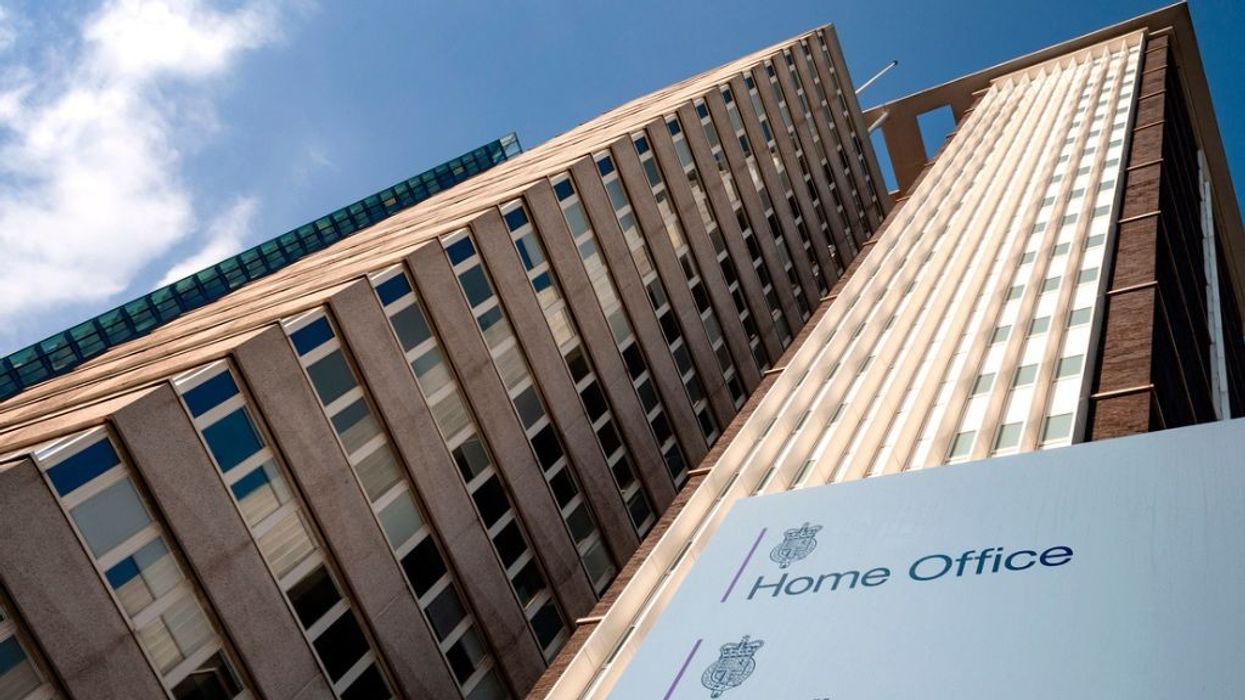He was once honoured by late Queen Elizabeth II for supporting 50 families with free food during the Covid-19-induced lockdown but for 42-year-old Vimal Pandya, the world has come crashing down as he is faced with deportation to native India within weeks as his appeal to stay back has been rejected.
Pandya had travelled to the UK from India in 2011 on a study visa but his college's right to sponsor foreign students was revoked by the home office three years later, leaving his future in a spot of bother, Daily Mail reported.
However, he did not give up and spent thousands of pounds in the last nine years fighting to stay back in the UK. As Covid-19 pandemic broke out during this time, the shopkeeper turned into a pillar of the community despite facing the deportation threat and during the first lockdown, helped more than 50 families with not just free food but also emotional support.
The efforts of Pandya, who lives in Rotherhithe in south London, were recognised by Sir Kenneth Olisa, the personal representative of the late Queen in Greater London, who even wrote to the former on behalf of Her Majesty to thank him.
"It has come to my attention that you are one of those people who have gone above and beyond the call of duty to help others during the Covid-19 pandemic," wrote Sir Kenneth.
"I am therefore writing to personally thank you for all of your efforts and to encourage you to continue making a positive difference to Londoners," he added.
But it seems Pandya's good deeds have not been adequate to protect him from getting deported. He has just a few weeks before being forced to fly back to his native country after a tribunal hearing ruled that the 'public interest in immigration control' outweighs his position with a judge ruling that he has been working in the UK "illegally" for a long time.
However, Pandya has found many sympathisers. Members from his local community as well people across the country have strongly expressed disappointment over the home office's decision. Hundreds have also come out demonstrating to support Pandya and an online petition to reinstate his visa has gained more than 175,000 signatures, the Daily Mail report said.
Pandya himself has been spending sleepless nights over the situation.
Speaking about the situation last year, he told Daily Mail, "I can't sleep at night because of this endless torture and misery. They can deport me at any time and send me back home - it's really scary."
Originally a stockbroker, he gained a student visa 12 years ago by enrolling in a management course with a college which went out of business following the payment of fees.
He was then informed by the home office that he had to find a higher education institute to sponsor his visa within 60 days or else, he would face deportation.
Pandya found himself to be second-time unlucky despite finding another college willing to sponsor his visa. After a return trip to India in 2014, he was told by the Border Force officials that the college had lost its right to sponsorship and the ghost of deportation loomed large again.
Pandya, who claimed that neither the college nor the home office informed him of the situation, was quoted as saying, "I have worked very hard to survive in this world. Altogether I have spent £42,000 on legal fees. Even criminals don't have to spend that much."
Pandya tried to challenge the deportation notice but in vain. He argued that it breached his rights to a private life but the home office rejected it.
He also appealed the verdict at a tribunal hearing in Hatton Cross in south-west London on January 13 but Judge Adrian Seelhoff turned it down.
Speaking at the tribunal, the judge said, "The appellant has made an exceptional contribution in the UK being an overwhelmingly positive factor in the lives of hundreds of individuals and families in the UK.
"Against that, the appellant has done this as someone who was admitted as a student with no expectation of ever having been allowed to live here permanently.
"The appellant's leave to remain was properly cancelled and he was given fair opportunities to seek an alternate college.
'The appellant then went underground and made no attempt to regularise his status and worked illegally for many years after his right to remain in the UK came to an end in 2014.
"Considering all the factors in this case in the round and despite the Appellant's impressive achievements I am not satisfied that they outweigh the public interest in immigration control when viewed in the context of a full and informed assessment of all the facts of the case.
"As a consequence I dismiss the appeal."
It is understood that Pandya has at most 28 days from the date of the verdict (January 24) to decide whether he wishes to challenge the judge's decision.
After that, he will be at risk of removal by the home office.
"I have been here 11 years, which is nothing by the Home Office's standards, but it is everything to me," he was quoted as saying by the news outlet.
"I love being here and I love the people around me. I've connected with this environment. I know this community. I have seen people grow up in front of me and I know which families need support."
He said what he has faced is unfair but he would not give up.




